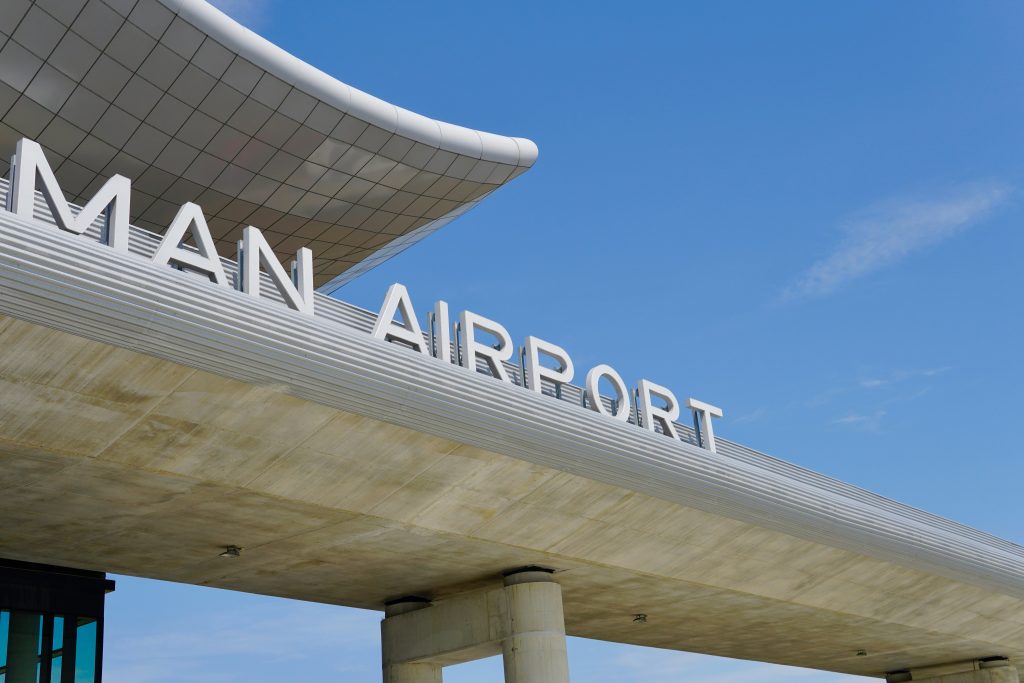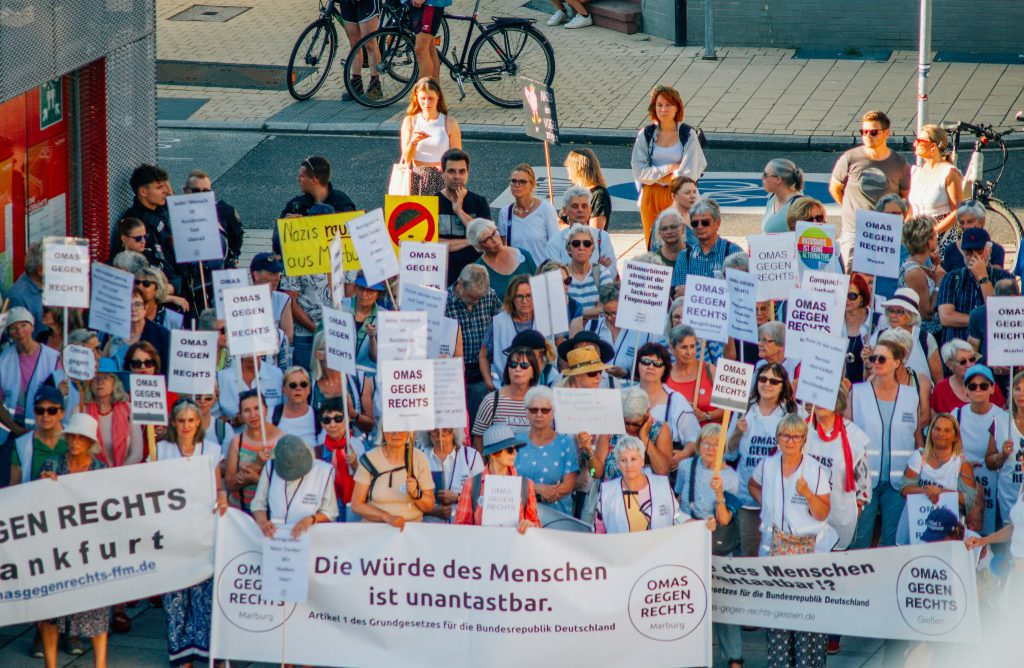November the 28th, 2024 – Germany is planning to send thousands of illegal migrants back to Croatia as per the Dublin III Regulation. The first flights carrying these individuals have already begun landing in Zagreb.
As Poslovni Dnevnik writes, on November the 13th, a charter took off from Munich’s Franz Josef Strauß Airport, heading southeast. The plane’s destination was Zagreb, and there were a mere fifteen names on the passenger list. They were citizens of Syria, Afghanistan, Turkey, Jordan and Iran. Among them was one person who was sentenced in Bavaria for “multiple illegal entry” into the Federal Republic of Germany, as reported by Deutsche Welle.
germany sends illegal migrants back to croatia

Under the watchful eye of efficient German police officers, the fifteen aforementioned people were transferred to the Croatian capital on that flight alone. They were returned to Croatia by the German authorities of the in accordance with the Dublin III Regulation.
That Regulation defines that the jurisdiction for a specific asylum seeker is the EU Member State in which that person first entered EU soil, that is, where they were registered for the first time. For the people Germany intends to ship its problem out to, that country is Croatia.
The flight from Munich to Zagreb was not a secret. The Bavarian authorities informed the public about it in a written statement. Just as they have published information about other “return measures” – for example to Romania, Georgia, Albania, Moldova, Macedonia, Serbia or Kosovo.
persons suspected of extremist activities transported from germany to zagreb

Back in mid-June (more precisely the 13th of that month), another such “Dublin flight” was organised, and it left from Stuttgart. It was then officially confirmed that it was “loaded”. Among other things, it transported a potentially very dangerous person against whom an investigation had been initiated in Bavaria on suspicion of extremist activity to Zagreb. This individual was transported directly from a detention centre to Stuttgart Airport, before Germany washed its hands of him, flying him to Croatia, the EU country he first registered in.
The German authorities want to increase the number of such flights to foreign destinations in the future, not only to Croatia. Germany also wants to increase the pace of expulsions of persons who aren’t entitled to Germany’s protection. In 2023, Germans wanted to deport a massive 74,622 illegal migrants to other EU countries under Dublin III.
Last year, the Germans sent the most requests for the handing over of asylum seekers to Croatia (16,704) and Italy (15,749) – in most cases, they’ve not had success. Although other EU countries have agreed to take about 55,000 of these “Dublin cases”, only 5,053 people were deported from Germany to those nations in 2023, the Federal Office for Migration and Refugees (BAMF) confirmed.
In the first half of 2024, according to the BAMF, Germany sent requests for acceptance of around 40,000 illegal migrants to other EU nations. In 25,000 of those cases, they agreed to accept these persons. In practice, only about 3,500 people were deported in the first two quarters of the current year.
italy says no to germany’s requests

Italy, for example, is generally opposed to accepting people deported from Germany, and Rome clearly does not want to change that course until the new EU Pact on Migration and Asylum comes into force in 2026. Its goal is to better protect the EU’s (often) way too-permeable external borders. The Croatian authorities are clearly more cooperative on this issue than their Italian counterparts across the Adriatic Sea. For example, Bavarian Interior Minister Joachim Herrmann (CSU) has discussed the return of illegal migrants to Croatia on several occasions with his Croatian counterpart Davor Božinović (HDZ).
At a meeting held in Munich on the 29th of August this year, the pair agreed that a “turning point on illegal migration” was much needed. They jointly expressed concern about migration flows along the so-called “Balkan route,” and Herrmann welcomed “consistent Croatian efforts to secure the EU’s external border.”
In this consistent security of the Schengen border, the Croatian police, as documented by various international actors on several occasions, also practised so-called illegal push-backs. In some cases, this involved allegedly violently pushing illegal migrants who had entered Croatian soil without coming through an official border point in the direction of Bosnia and Herzegovina.
Even with allegations such as the above well known, it hasn’t put Germany off in its attempts to return illegal migrants to Croatia if they first registered there.
mass deportations on the basis of the dublin iii regulation

One of the topics at the meeting between Herrmann and Božinović this summer was mass deportations based on the Dublin III Regulation. The Bavarian police chief announced at the time “intensification of cooperation”, and under the impression of the horrific attack in Solingen (which happened only a few days earlier), he called on the federal government to optimise the practice of deporting rejected asylum seekers to other EU countries, but also to countries such as Afghanistan or Syria.
DW looked into the example of Bavaria, the first federal state to be “hit” by the issues of the so-called “Balkan Routes”. It investigated just how many rejected asylum seekers Germany had, as well as other persons without the right of residence (illegal migrants), who had actually returned to Croatia. It’s actually a relatively small number of people.
The Bavarian Asylum and Return Service confirmed to DW that between January the 1st, 2023 and September the 30th, 2024, the Bavarians operated a total of five charter flights to Croatia (two flights in 2023, and three this year). Those planes carried a total of 21 illegal migrants from Bavaria to Croatia (2023: 10, 2024: 11). The flights in question included not only rejected asylum seekers and persons without a regular residence permit from Bavaria, but also from elsewhere in Germany.
germany is focusing on ridding itself of the problem

According to data from October the 31st of this year, there were a total of 25,646 people in the territory of Bavaria who, for various reasons, should have already left. Among them are 460 Croatian citizens. This primarily refers people who have been legally sentenced to prison or members of criminal organisations who happen to be Croats.
Considering the relatively small number of realised deportations and non-compliance with Dublin III in practice, Federal Chancellor Olaf Scholz (SPD) announced an offensive regarding the return of illegal migrants who were registered in other EU countries and who had managed to get to Germany. Scholz then promised “deportations in a grand style”.
the germans want a radical change to migration policies

The majority of German citizens, as polls showed, wanted a radical turn in migration and asylum policy. Under the pressure of the strengthening of right-wing forces, above all the AfD (Alternative for Germany) party, i.e. the erosion of citizens’ trust in the federal government, the semaphore-coalition then announced a much higher number of deportations of those people who didn’t have the right to protection in Germany anyway.
One of these people is 26-year-old Issa Al H. This Syrian citizen is currently in pre-trial detention on suspicion of killing three people with a knife in the city of Solingen in western Germany on August the 23rd of this year. Eight people were injured in the tragic Islamist-motivated assassination.
Issa H wasn’t actually supposed to be in Germany. He should have been transferred back to Bulgaria last year, also on the basis of Dublin III. Sofia then expressed willingness to take him off Germany’s hands, but the deportation failed because the German authorities were unable to actually find him.
Issa H initially arrived in Germany at the end of 2022, where he applied for asylum. His request was not processed at all because Germany was not responsible for him – Bulgaria was. After that, the young Syrian became radicalised: the “Islamic State” (IS) later claimed responsibility for the terrorist events in Solingen.
Legal regulations have been tightened in the meantime, but without much success. In the first nine months of this year, almost 62% of planned deportations (to EU countries or third countries such as Afghanistan) were ultimately not realised. Throughout the whole of 2023, 65.6 percent of deportations “failed”. According to the Federal Ministry of the Interior, a total of 16,430 people were deported from Germany (to EU countries or third countries) in 2023.
why do these deportations typically fail?

One of the most common reasons for not carrying out deportations is the situation in which the affected persons are hiding from the authorities. That’s because the courts forbid the return to their home country or the flight cannot be carried out for some reason, for example for health reasons.
According to current data from June 2024, 226,882 people with the status of “ausreisepflichtig” live in Germany – these are people who don’t have a regulated residence permit and who should leave Germany. The largest part is made up of rejected asylum seekers – 57% of them, making up a total of 128,355 people.








